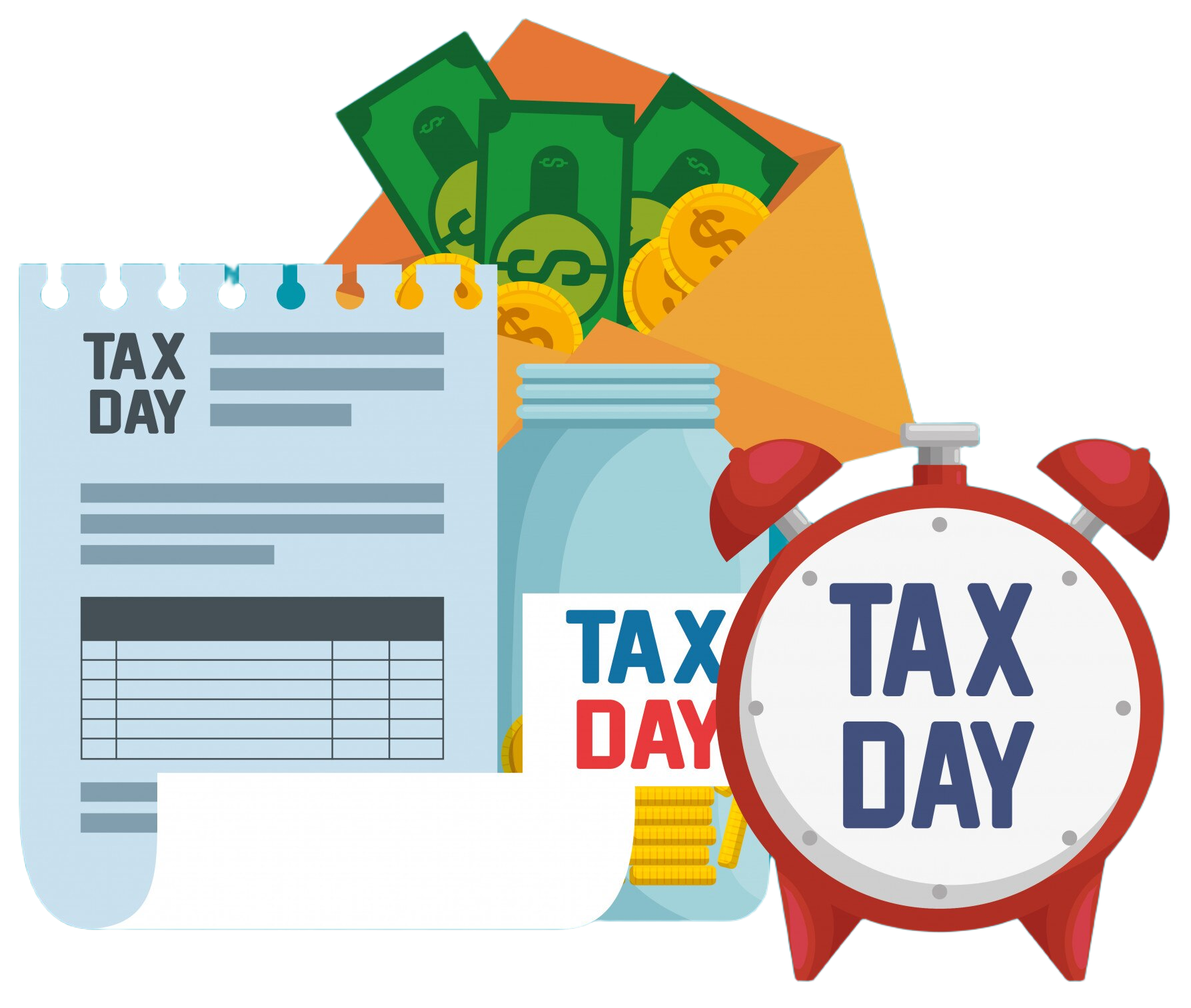Tax Saving Schemes
Most financial investments exist as tax saving schemes because they enable taxpayers to lower their taxable income while protecting their financial interests. Public investment schemes, therefore, follow government regulations in order to provide reduced tax liability through income-related deductions and exemptions.
The selection of a particular scheme, therefore, needs evaluation based on financial targets; additionally, it requires consideration of individual risk tolerance, along with the planned investment period.

Why Implying to Tax Saving Schemes is important?
- Reduces Tax Liability :- The tax deduction feature, consequently, enables people and organizations to cut down, therefore the amount of income subject to taxation.
- Encourages Savings & Investment :- Saving habits become disciplined because individuals choose PPF with NPS and ELSS to create financial steadiness.
- Supports Retirement Planning :- Making investments in NPS together with EPF and SCSS builds a dependable retirement fund.
- Provides Financial Security :- Financial emergencies can be addressed through two schemes; namely, health insurance under Section 80D and, on the other hand, life insurance under Section 80C.
- Maximizes Returns on Investments :- Tax-saving instruments provide both high investment returns and tax deduction benefits, such as ESLS and NPS.
- Encourages Long-Term Wealth Creation :- The mixture of fixed deposits, mutual funds, and pension schemes creates wealth growth together with tax benefits for investors.
- Reduces Financial Burden :- Tax deductions, therefore, bring relief through reductions in financial expenses linked to loans for education and healthcare.
- Government Incentives & Compliance :- The implementation of tax-saving schemes allows investors to meet tax regulations while earning incentives from public support.
Types of Tax Saving Schemes in India for Various Sectors
-
Tax-Saving Investment Schemes
- Public Provident Fund
- Employees’ Provident Fund
- Equity-Linked Savings Scheme
- National Pension System
- Fixed Deposit
- Sukanya Samriddhi Yojna
- Senior Citizens Savings Scheme
-
Health and Insurance Benefits
- Health Insurance Premium (Section 80D)
- Life Insurance Premium (Section 80C)
- Disabled Dependent (Section 80DD & 80U)
-
Education-Related Tax Benefits
- Tuition Fees (Section 80C)
- Education Loan Interest (Section 80E)
-
Home Loan & Real Estate Tax Benefits
- Home Loan Principal Repayment (Section 80C)
- Home Loan Interest (Section 24b)
- Additional Deduction for First-Time Home Buyers (Section 80EE, 80EEA)
-
Other Tax-Saving Schemes
- Donations to Charitable Organizations
- Interest on Savings Accounts (for Senior Citizens)
-
Retirement and Pension Schemes
- National Pension System (NPS) (Section 80CCD)
- Atal Pension Yojna (APY)
-
Agriculture Income and Rural Development
- Exemption on Agriculture Income
Do you want to know more about our hihellohr Software?
Government Tax Saving Schemes
Public Provident Fund (PPF)
As a government-supported long-term investment scheme, the Public Provident Fund (PPF) provides funds that are exempt from taxation. Furthermore, the public provident fund allows tax deductions worth ₹1.5 lakh for a time period of 15 years. Additionally, the interest generated on this investment is tax-exempt, which makes the Public Provident Fund a dependable way to reduce taxes.
Sukanya Samriddhi Yojana (SSY)
Employees’ Provident Fund (EPF)
Corporate Employees can use the Employees’ Provident Fund (EPF) for retirement savings since employers and employees each contribute to this program. Contributions of up to ₹1.5 lakh can take Section 80C-qualified tax deductions. The tax exemption benefits on interest and maturity payments apply to employees who maintain continuous employment for five years.
Senior Citizens Savings Scheme (SCSS)
Tax-Saving Fixed Deposit (FD)
National Pension System (NPS)
Tax Saving Schemes Focusing on Employees
Employees’ Provident Fund (EPF)
- The Employees’ Provident Fund system compels salaried persons to participate by increasing their salary by 24% through joint contributions from workers and their employers. Contributions are tax-deductible under Section 80C. The combination of interest gains and maturity proceeds become tax-exempt when employees stay as part of the program for five consecutive years. Such conditions make this type of investment secure.
Public Provident Fund (PPF)
- The Public Provident Fund (PPF) serves as a savings program whose government support allows tax benefits according to Section 80C. Employees who want to invest under this scheme have a yearly limit of ₹1.5 lakh and a predetermined investment period of 15 years. This scheme provides guaranteed returns with tax-free interest payments and tax-free maturation benefits, which make it an optimal solution for retirement preparation as well as extended financial planning.


- The National Pension System provides retirement savings that enable employees to claim tax benefits under Sections 80C and 80CCD(1B), including tax-free maturity amounts. Stakeholders who participate in the system can create their retirement fund through dollar-cost averaging between stocks and bonds. Retirement security becomes possible at maturity because 60% of the tax-free corpus remains untouched.
- The five-year tax-saving fixed deposits invested by employees become eligible for Section 80C tax deductions. This account offers interest rates above standard savings rate amounts but becomes taxable to the investor. Employees who need stable tax-saving investments alongside guaranteed returns and protected capital can use this product.
- Employees can use tax-saving mutual funds known as Equity-Linked Savings Scheme (ELSS) to receive tax deductions under Section 80C while simultaneously building wealth. The minimum three-year lock-in makes ELSS stand out as the investment with the shortest time requirement within the tax-saving category. People who select ELSS receive the best investment returns from stock market participation while facing potential market-based financial threats.
- Workers who pay home loan EMIs can deduct their home principal amount through Section 80C while using Section 24(b) for their interest payments. First-time home buyers receive tax benefits through two additional sections, 80EE and 80EEA. Such tax deductions from income help workers acquire future assets while decreasing their tax burden.
- National Savings Certificates serve as a low-risk tax-saving instrument during a five-year term because Section 80C deductions apply to it. The exclusive taxation of earned interest does not affect tax benefits because this income is reinvested for four consecutive years. The National Savings Certificate (NSC) provides employees with fixed and secure returns, which can serve as part of their tax planning initiative.
- Additional voluntary contributions to VPF help employees secure tax benefits from Section 80C because all contributed amounts qualify for this deduction. The VPF operates with the same interest percentage as EPF and enables tax-free withdrawal starting five years after deposits. Employees who need long-term risk-free savings can find VPF to be their best investment choice.


- Employees who have a female child hold the opportunity to participate in SSY, which is supervised by the government and provides tax breaks through Section 80C. The investment plan gives its investors benefits of significant interest rates along with tax exemption at maturity. This financial product provides parents with a suitable option for planning because funds can be withdrawn to pay for their child’s education or wedding expenses.
- Employees receive tax deductions under Section 80D for their health insurance expenses and those paid for their spouse, along with their children and parents. Health insurance that covers family members and parents allows self-insured individuals to deduct premiums up to ₹25,000 but also provides an additional deduction opportunity of ₹50,000 for senior citizen parents. Through this tax deduction, employees gain dual advantages of tax saving alongside medical protection from emergencies.
Tax Saving Schemes for Senior Citizens

Fixed Deposits for Senior Citizens

Pradhan Mantri Vaya Vandana Yojana (PMVVY)

National Pension System (NPS)

Public Provident Fund (PPF)

Senior Citizens Savings Scheme (SCSS)

Complete tax exemption (Section 80TTB)
Best Income Tax Schemes For the Year 2025
-
Equity-Linked Savings Scheme (ELSS)
People can use Equity-Linked Savings Scheme tax-efficient structures, which combine equity investments under mutual fund products. The Income Tax Act allows yearly payments to qualify for tax deductions reaching ₹1.5 lakh under section 80C. Higher possible returns stem from equity-based investments because equity-linked Savings Scheme funds must remain locked for three years.
-
Public Provident Fund (PPF)
The Public Provident Fund operates through the Indian government and runs for 15 years while granting Section 80C tax deductions to its contributors. Investment interest payments escape taxation laws, which makes this instrument a secure opportunity for tax-efficient savings.
-
National Pension System (NPS)
The National Pension System provides retirement saving benefits and Section 80C tax reductions and Section 80CCD(1B) tax breaks for additional amounts beyond ₹1.5 lakh, which can reach up to ₹50,000. The investment tool allows for asset adjustments while working toward the creation of a significant retirement savings fund.
-
Tax-Saving Fixed Deposits
Tax savings come from this five-year fixed deposit product, which receives deductions under Section 80C. Safety-oriented investors with moderate return needs can find the products beneficial because they provide financial safety and modest returns.
-
Unit-Linked Insurance Plans (ULIPs)
The investment product ULIPs connects life insurance coverage to market investments between stocks and bonds through its features. Premium amounts in tax-saving fixed deposits qualify for Section 80C deductions while receiving tax-exempt proceeds through Section 10(10D) with specified requirements in place.
“Whether you are an employed individual or an entrepreneur, irrespective of your age. Learning how to Save Income Tax while living in a country like India will not only benefit your livelihood but also help you save the money from your hard-earned money. Therefore, knowing about these schemes becomes a necessary part of your knowledge”.
Related Articles:




